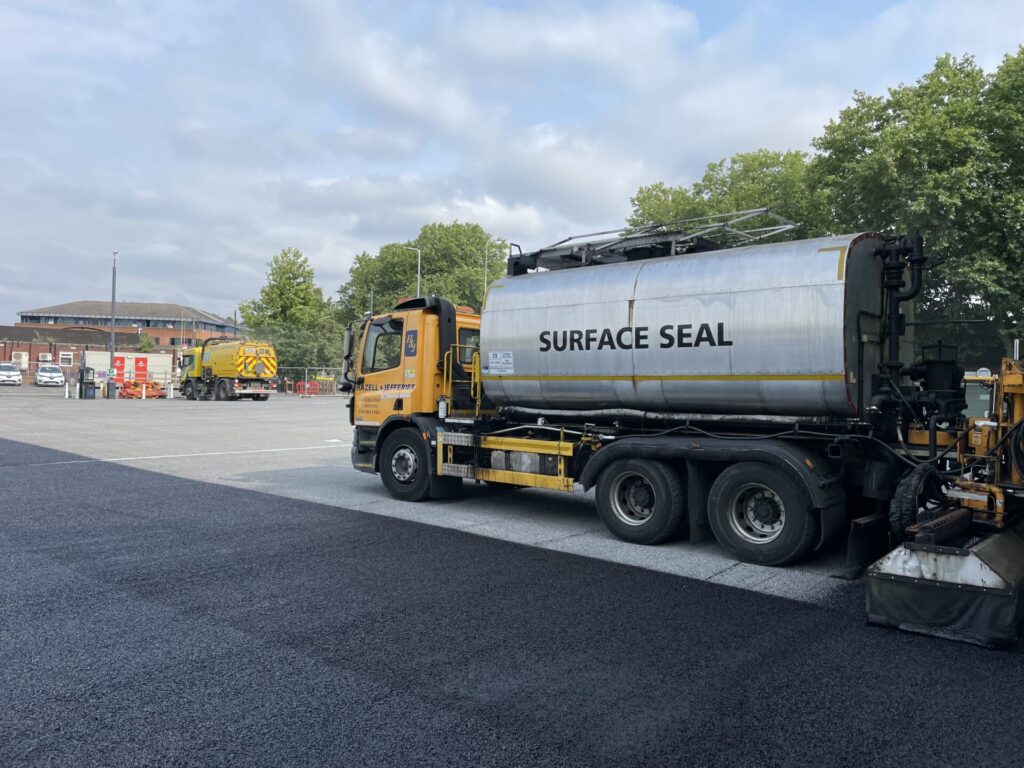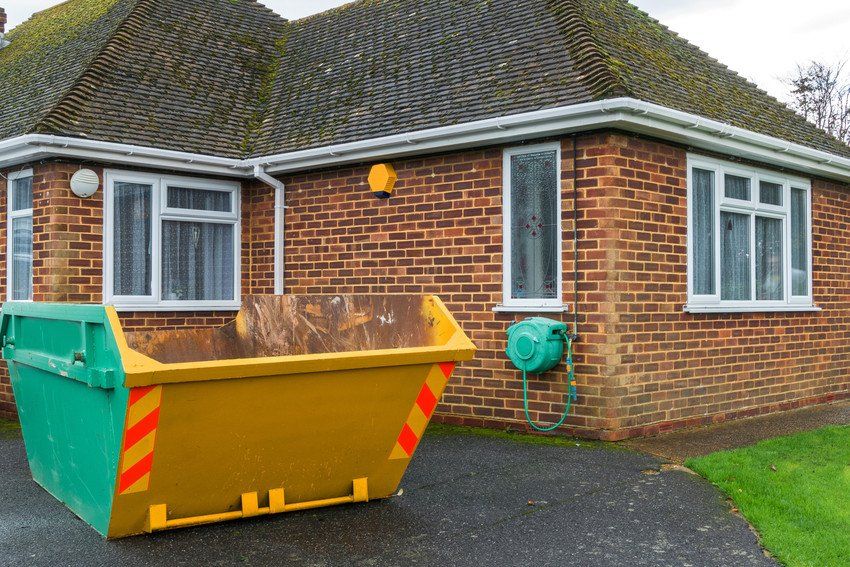When you want a new pathway or driveway for your home or business, there will be a lot of things you need to consider.
What colour will it be? How much traffic and footfall will it get? And most importantly, what material will it be made from?
If you’re looking for something durable and customisable, a resin-based surface is the ideal option. We’re resin paving specialists at Hazell & Jefferies, so we’re perfectly placed to help with your surfacing and resurfacing needs.
Let’s look at the different types of resin-based surfaces and which one is the right choice for your construction project.
There are two types of resin-based surfaces: resin-bound and resin-bonded. Some people use the two terms interchangeably, but the two surfaces are vastly different!
Resin-bound surfacing is when the aggregates (grained material like crushed stone, gravel, and sand) are mixed with the resin. The mixture is then overlaid on a tarmac, asphalt, or concrete base. This gives you a ‘smooth’ effect.
Resin-bonded surfacing is when the resin is overlaid on a tarmac or concrete base, and the aggregate is scattered on top. This gives you a ‘rough’ effect.
Resin is great for surfaces as it’s easy and quick to install, is low maintenance, and lasts for a long time. When installed correctly by a specialist like Hazell & Jefferies, your resin-based surface can last upwards of 25 years.
There is also a lot of variety available. You can choose the colour, size, and shape of the stones you want to use, meaning you can have a resin-based surface that’s tailored to your specific needs.
Resin-bound and resin-bonded surfaces have different benefits too.
Many people like the look of resin-bonded surfaces. While resin-bound surfacing looks uniform throughout, a resin-bonded surface gives the illusion of gravel. As a result, it’s ideal for traditional and historical premises where resin-bound surfacing may look too contemporary.
Resin-bonded surfacing is also more grippy, which is ideal if you want a safe surface that people can walk on without worrying about falling over (although resin-bound surfacing is still grippy too!)
Resin-bounded surfaces are usually cheaper, as less resin is needed in the construction process.
The key advantage of resin-bound over resin-bonded surfacing is that it’s permeable, meaning water can pass through to the ground beneath it. This means less chance of flooding and puddles, and no ice will form on it during the winter months.
Conversely with resin-bonded surfaces, you need to ensure there is adequate drainage in place before you install it and you’re not installing your surface in a flood-risk area.
Resin-bound surfaces are also SUDs compliant, making them an environmentally-friendly option for your home or commercial premises.
As the aggregate is mixed into the resin rather than scattered on top, this surface looks better for longer as there is less chance of stones coming loose.
Resin-bound surfaces are fantastic if you’re looking for an aesthetically pleasing, modern surface which is easy to maintain; just power wash it, and you’re good to go!
Find out more about why you should opt for a resin-bound driveway
It depends on the style of property the surface is for, your budget, and what the drainage is like. We offer both types of surfaces at Hazell & Jefferies, so whatever your needs, we’ve got you covered.
Not sure which resin-based surface is suitable for you? Don’t worry. Our expert team will help you choose the right option for your construction project.
Whether you’re looking for resin-bound or resin-bonded surfaces, we have over fifty years of experience in the resurfacing industry.
Whatever your needs, our skilled workers will work quickly and safely to provide high-quality and long-lasting results.
As well as resin-based surfaces, we provide a wide range of services all across the UK, from skip hire and road planing, to surface dressing. We’re a one-stop-shop for all of your resurfacing needs.
Contact us today, and let’s see how we can work together on your upcoming surfacing project.

